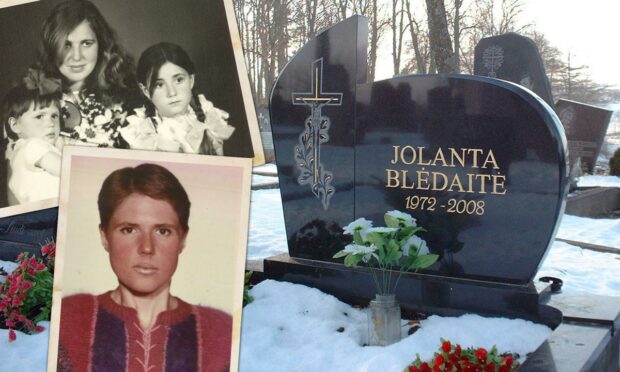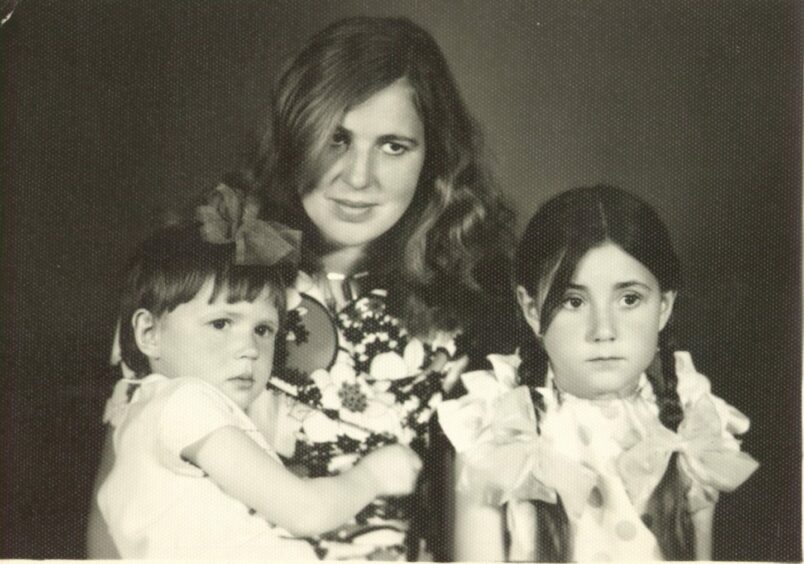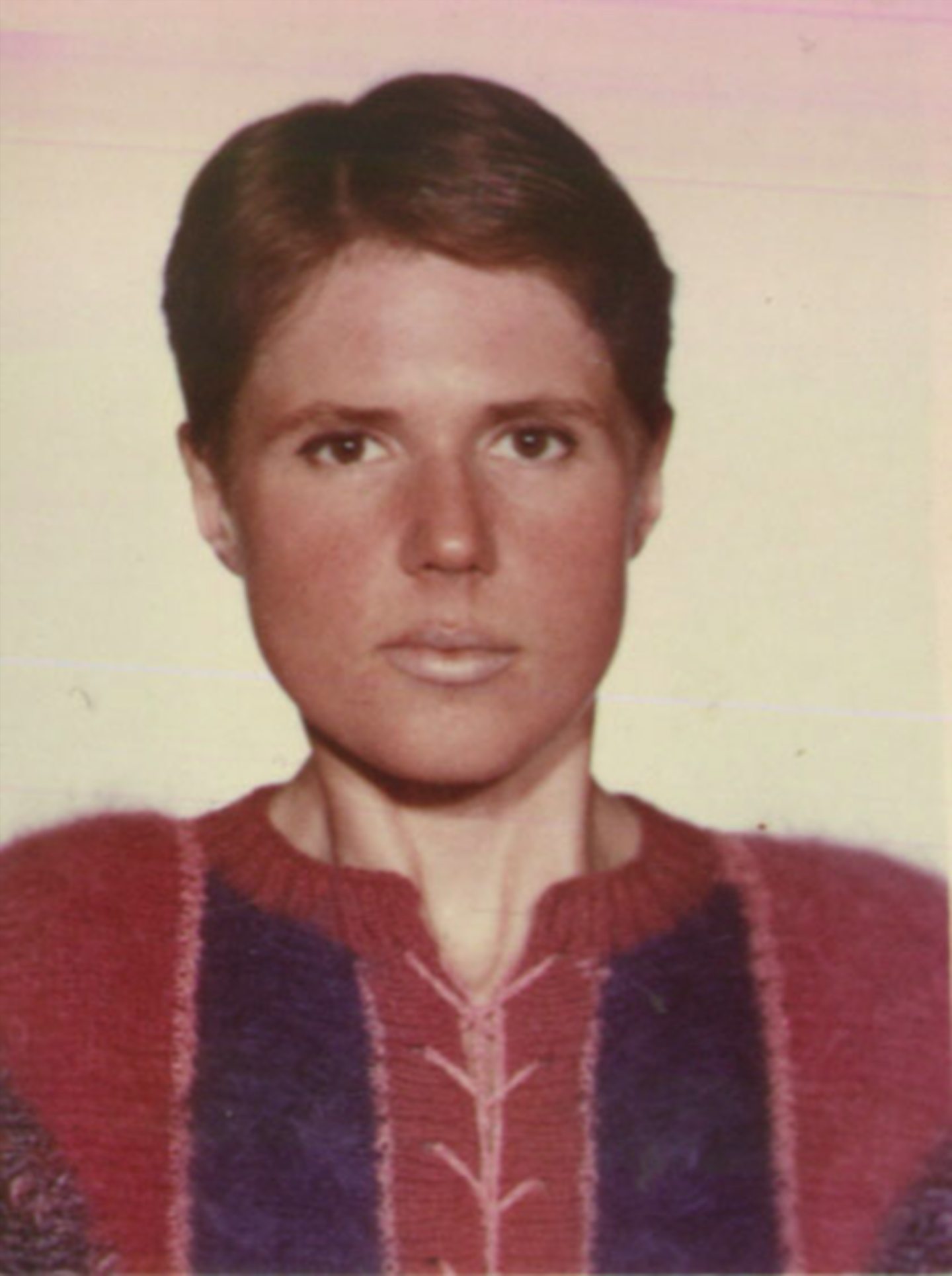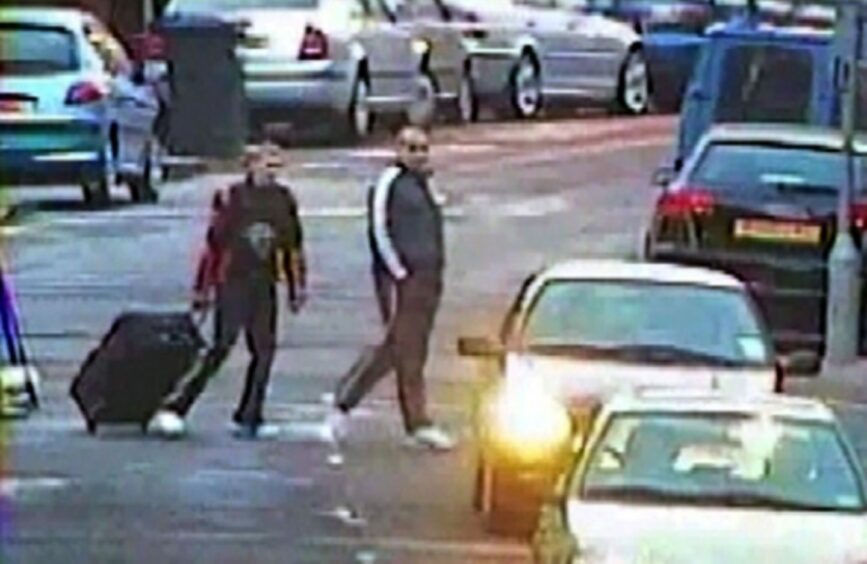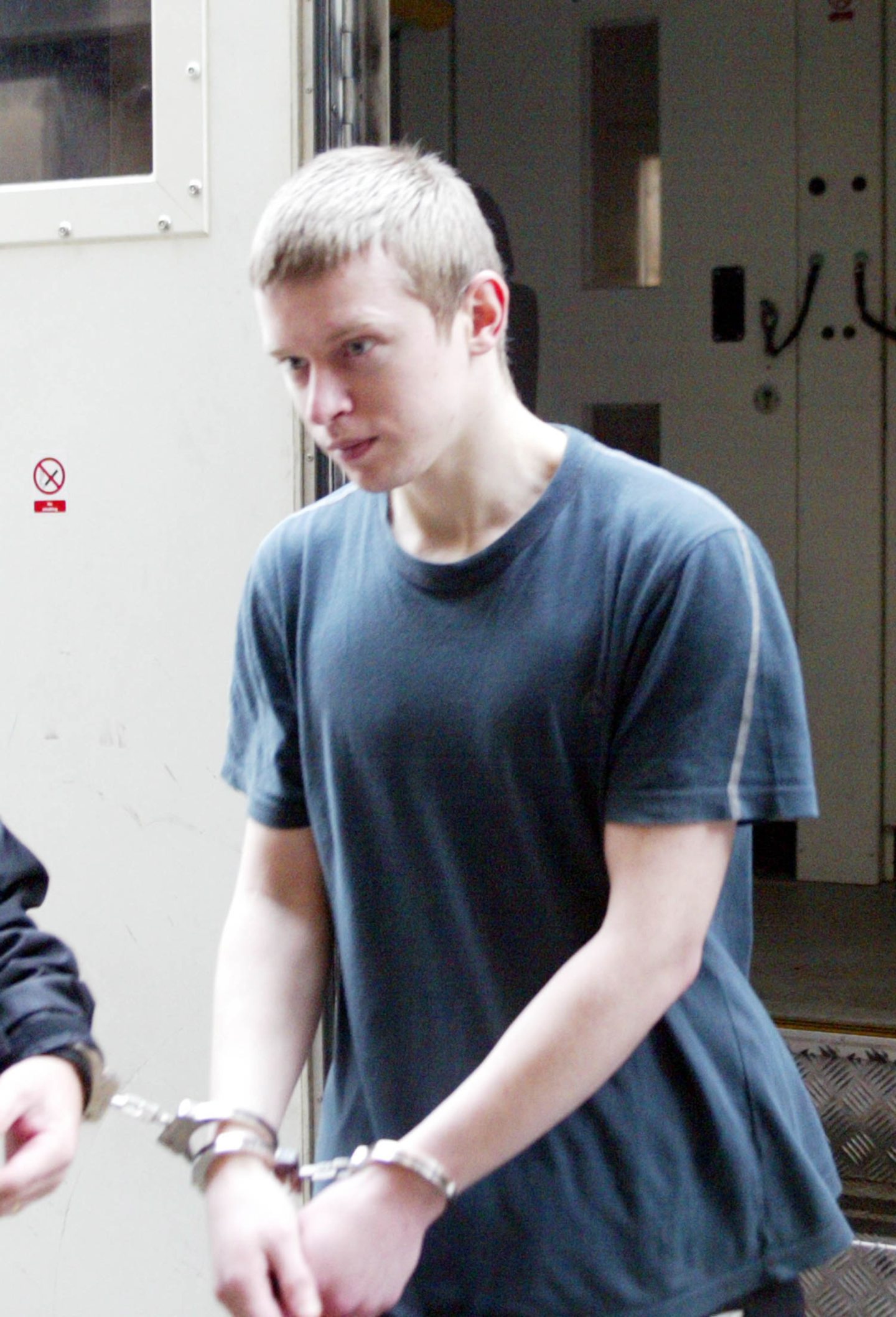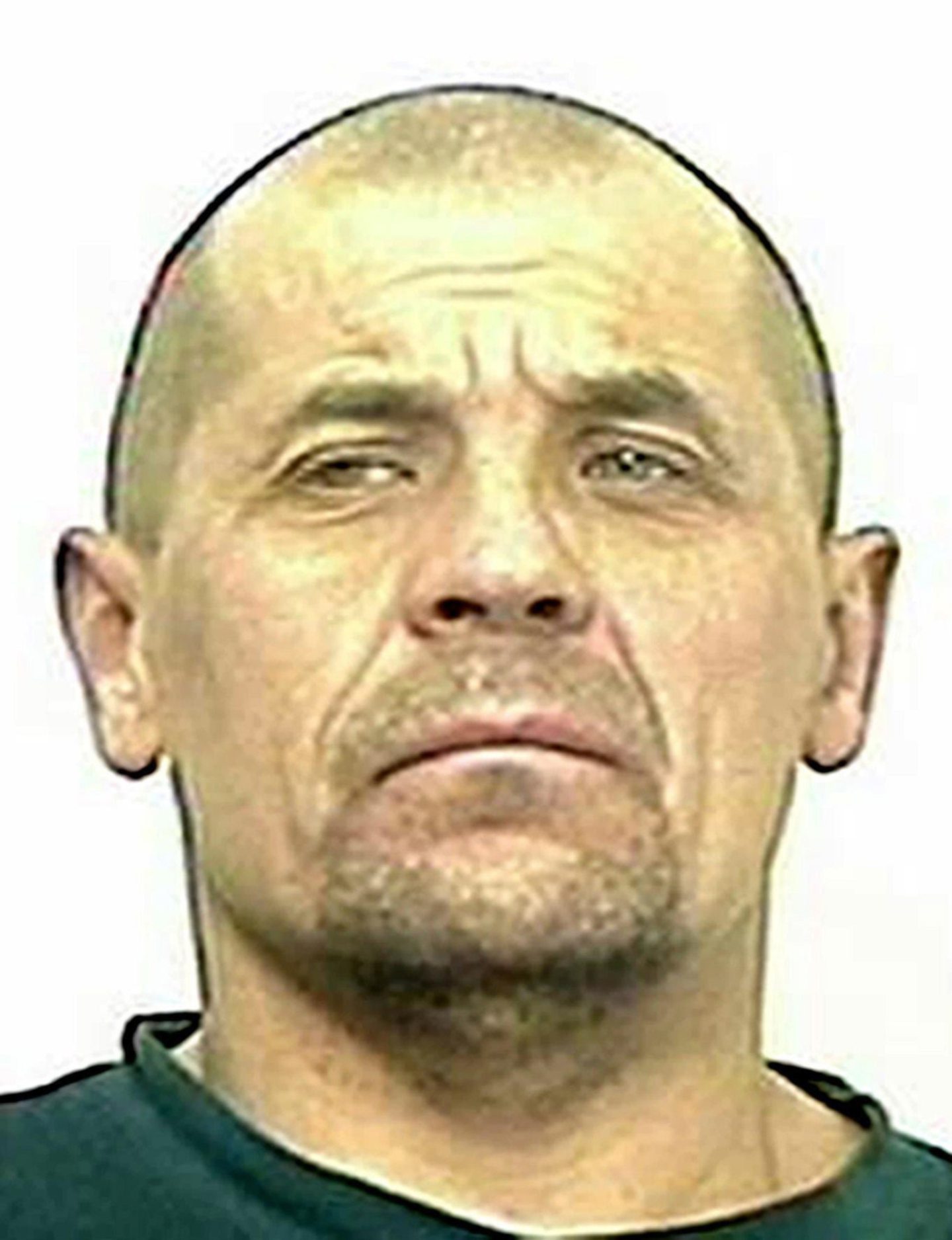Two young sisters were playing happily on the beach at Arbroath in the spring sunshine in 2008 when they spotted a plastic bag.
The curious youngsters decided to take a look inside. What they saw would have traumatised most adults.
They ran back home to tell their mother, who called the police.
Detective Chief Inspector Graham McMillan was at his desk at Forfar Police Station on what was only his second day in charge after assuming CID command.
He took the call and learned two children who were playing on the beach at Arbroath had discovered a human head in a supermarket carrier bag.
The calendar said April 1 and, for a brief moment, DCI McMillan believed that he might be on the receiving end of an April Fool’s Day prank.
Sadly, it quickly became clear it was not some macabre joke and sparked an operation that propelled the name of Jolanta Bledaite into the public consciousness.
Who was Jolanta Bledaite?
The life of Jolanta Bledaite was blighted by tragedy from the start.
She was unwanted by her mother, who had struggled with alcoholism from an early age, and was dumped on her grandmother as a baby of a few hours old.
Jolanta grew up in poverty on a remote, ramshackle farmstead in a rural area of southern Lithuania.
Jolanta’s schooling suffered as a result of the neglect and turmoil of her dysfunctional family and she left aged 16 with no qualifications.
On leaving school, Jolanta took casual work before eventually going to Kaunas, the second-biggest city in Lithuania, to escape poverty.
Things were looking up. She worked on the checkout of a big store and began saving for a flat.
Jolanta had been inspired by her sister, who was now living in Moscow, to travel abroad in her quest for a better life and headed to Ireland then the UK in 2006.
Jolanta’s mission to build up the funds for an eventual return to a new life in her beloved homeland first saw her work in Cornwall but it soon brought her to Angus.
She found a role in which she was happy – on the potato dressing line at the Gask Farm operation of the well-known Lumgair Brothers’ set-up, near the village of Letham.
After a short stay in a caravan near Brechin, a comfortable, simply furnished flat in a Southesk Street tenement was where Jolanta called home.
Murderous plot hatched
She shared it with Aleksandras Skirda, a young man she believed to be her friend but who would become one of the two men to brutally end her life at the age of 35.
Skirda had heard her talking about having four or five thousand pounds and said he was aware she saved her money and did not socialise or spend much.
He discussed that with fellow Lithuanian worker Vitas Plytnykas and the two men hatched a murderous plot to steal her money and dump her in the sea.
Around 8am on the morning of Saturday March 29, Skirda, as planned, made a phone call to Plytnykas that would set the horrific chain of events in motion.
Jolanta was reading in her bed when Skirda and Plytnykas burst into her bedroom and forced her to give bank card details for an account containing several thousand pounds.
The woman was tortured by the pair then she was smothered with a pillow and dismembered in the bath.
Skirda and Plytnykas transported their victim’s body parts across Angus – her head and hands in a carrier bag on a public bus and then her torso in a suitcase in the boot of an unsuspecting friend’s car – before dumping them in Arbroath harbour.
They left no trace of her behind, as far as they could see.
But the Arbroath tide, and the speed with which it washed the black bin liner and its horrific contents ashore and before the innocent gaze of two young girls, at least helped bring some justice for Jolanta.
That serious incident sparked an operation which, at its peak, involved 80 police officers and propelled Arbroath into the news spotlight both at home and abroad.
Press conferences were conducted on the seafront as media flooded into Angus and the exposure the story received undoubtedly played an early helping hand in the inquiry.
A young female police officer recognised the artist’s impression of the victim as a woman she had previously dealt with because Jolanta had helpfully acted as an interpreter when police were looking into a minor incident in Brechin.
Simultaneously, the gang master on the farm where she worked made inquiries over the diligent young worker’s absence and wasn’t convinced by the story he was given.
Damning pictures
Suspicions started to form in relation to the Brechin flat where Jolanta lived and those who had access to it and Skirda and Plytnykas were brought in for questioning.
Thousands of hours were spent taking statements and countless hours of CCTV footage trawled, which provided the damning pictures of the pair on their two trips to dump Jolanta’s dismembered body in the North Sea, into which police divers plunged to recover her bloodied torso.
It was still in the suitcase that had been trailed through the streets of Arbroath before being thrown over the harbour wall.
Grampian Police divers carried out the Arbroath Harbour search and, as a result of information gleaned by detectives, were also able to focus their efforts inland, on a stretch of the River South Esk near Brechin where they recovered the knives used.
Skirda and Plytnykas had come up wanting in their attempt to commit the perfect crime and, as they discovered, the net closed in on them with remarkable rapidity.
Skirda admitted his guilt within hours of being questioned by police, insisting Plytnykas masterminded it, and offered to give evidence against him.
Plytnykas denied the charges and claimed he was elsewhere but he was found guilty by a jury at Edinburgh High Court in February 2009 following seven days of evidence.
Co-accused Skirda delivered a graphic testimony from the witness stand with his account of Jolanta’s final moments and the butchering of her body in the bath.
The verdict then brought the shocking revelation that Plytnykas had killed a man in Germany in 2001 and been sentenced to seven years for manslaughter.
At the conclusion of the trial, judge Lord Pentland described Jolanta’s murder as a “truly monstrous and evil crime”.
He said the pair had put an evil plan into effect with “chilling composure and determination”.
Sentenced to life
Plytnykas received a minimum life term of 28 years and co-accused Aleksandras Skirda was ordered to spend at least 20 behind bars.
The repatriation of Jolanta’s body was paid for from a fund to help her family launched in Brechin by Angus Provost Ruth Leslie Melville and council leader Bob Myles, which closed at over £16,000.
“Angels from Heaven” was how Jolanta’s grandmother described the compassionate people who clubbed together to send Jolanta back to her family.
One-time Red Army soldier Plytnykas was deported to his homeland in 2014 to serve the remainder of his life sentence, where he continued to deny he had any involvement in Jolanta’s murder and claimed he only helped dispose of the body.
Plytnykas sparked fury when he sent a rambling letter from his cell in Vilnius, moaning about life as an inmate without a television or money, and complaining his human rights were breached during his time behind bars in Perth.
He said his human rights were breached “hundreds of times” during his time in Perth prison, where he was attacked by fellow inmates and also went on hunger strike.
Plytnykas found little sympathy in Angus, whose residents hoped it would be the last they’d hear of him, staggered by the “audacity” of the bleating killer.
More like this:
